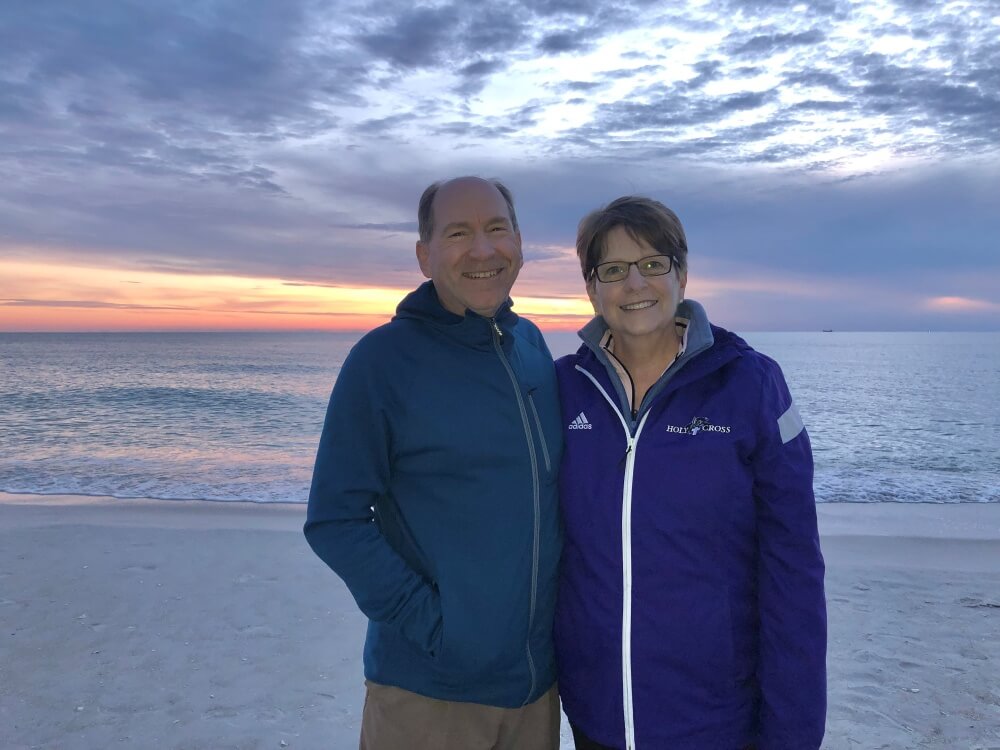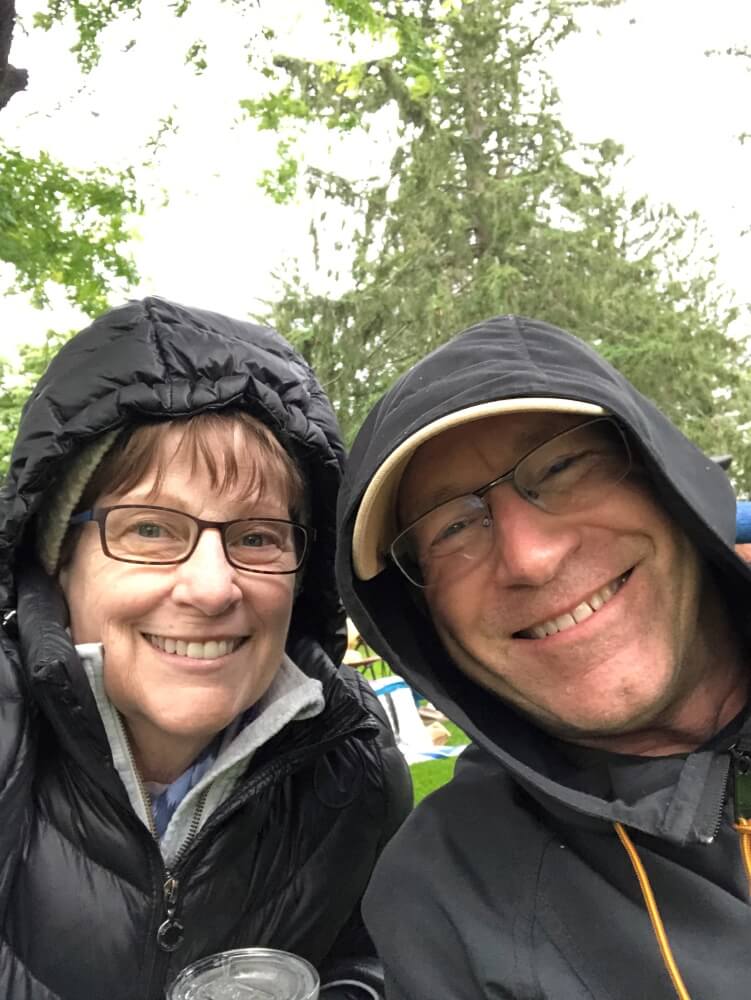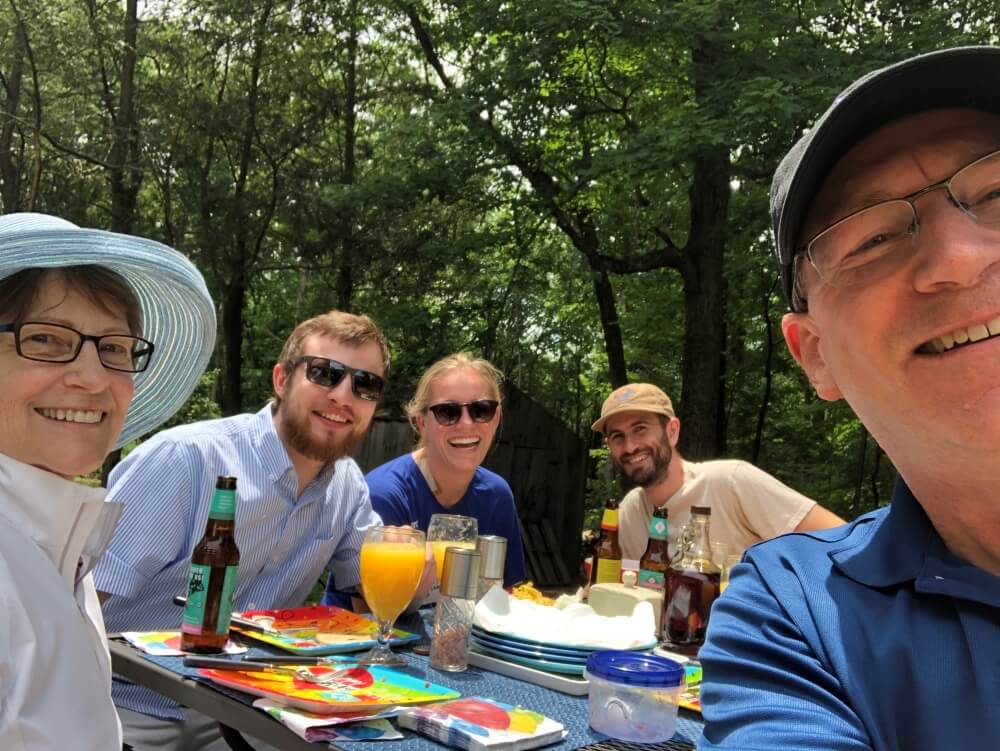Cari Carpenter is a pioneer. Coming of age athletically in the 1970s, when competitive sports were just opening up for young women, she paved the way for the next generation — including a daughter who played and now coaches college field hockey. It’s the same in her professional life, where Carpenter runs an innovative program that provides farmers with the infrastructure needed to better serve their communities in challenging times.
So when Carpenter, 63, already the survivor of both a neuroendocrine/carcinoid tumor and lymphoma, learned that a second lymphoma recurrence made her eligible for a new treatment — outpatient CAR T-cell therapy — she did not hesitate to try it. In addition to offering her hope for remission, and less time at the hospital away from her family, the April 2022 procedure at Dana-Farber Brigham Cancer Center provided her with another chance to chart the course for others.
“I’ve always been aware of, and thankful for, those who came before me at each stage of my treatment,” says Carpenter. “Hopefully whatever they learn from my experience will be able to help more people down the line.”
A complex form of immunotherapy, CAR T-cell therapy entails collecting an individual’s T cells, genetically altering them to target a particular cancer, and then reinfusing them into the patient. Dana-Farber Brigham — where Carpenter receives all her care — has offered CAR T-cell therapy for several years, but before 2022 it required an inpatient hospital stay of one or more weeks. Carpenter was just the second lymphoma patient to go through the procedure there as an outpatient, and credits her care team led by oncologist Caron Jacobson, MD, MMSc, for easing whatever nervousness she may have had about the process.

Competence and confidence
The optimism Carpenter had regarding her outpatient CAR T-cell treatment is an extension of what she’s felt for more than a decade as a cancer patient. In 2012, when she was diagnosed with a neuroendocrine tumor — a relatively rare form of cancer that originates from specialized cells called neuroendocrine cells — she came under the care of Jennifer Chan, MD, MPH, clinical director of the Gastrointestinal Cancer Center at Dana-Farber Brigham as well as director of its Program in Carcinoid and Neuroendocrine Tumors. Carpenter had surgery to remove the tumor that year, and has met regularly with Chan for scans and monthly infusion shots to control her disease. However, during Carpenter’s routine scans in 2017, Chan noticed something she suspected might be lymphoma.
“Dr. Chan has been a great caretaker for my health; she told me, ‘I have a great physician I’d like you to meet,’” says Carpenter. “That’s how I got to Dr. Jacobson.”
Once Jacobson confirmed the lymphoma, she started Carpenter on a chemotherapy regimen that put the cancer into remission. When it returned two years later, Carpenter underwent another chemotherapy regimen.
Then, after the lymphoma came back a second time in January 2022, Jacobson suggested a different approach. Outpatient CAR T-cell therapy had recently received U.S. Food and Drug Administration (FDA) approval for lymphoma treatment.
“Outpatient CAR T-cell therapy has many perks, but requires both a motivated and engaged patient and caregiver to perform all the self- and remote monitoring necessary to allow this to be done safely outside the hospital,” says Jacobson, medical director of the Immune Effector Cell Therapy Program at Dana-Farber Brigham. “Caroline and her husband were perfect for these tasks.”

Carpenter says Jacobson’s ability to break down the complex procedure into language she and her husband, Wayne, could understand was critical. So was the doctor’s confidence.
“Dr. Jacobson was just phenomenal, and so was the whole CAR T team,” says Carpenter. “From my nurse navigator Kathleen to my pharmacist Eno, and all the other people involved, everybody was so organized and prepared and helpful. That gave me tremendous confidence.”
In good hands
Outpatient CAR T-cell therapy requires daily monitoring at Dana-Farber Brigham’s outpatient clinic before and after a patient receives their CAR T-cells, so recipients are required to stay close by the clinic during this period — and have a caregiver with them at all times. Because they live two hours away, Carpenter and her husband stayed at a hotel near Boston leading up to her April 2022 procedure.
“Each day we drove into Dana-Farber Brigham so they could chart my progress, and each afternoon when we got back to our hotel room Wayne would check all my vitals and report them to the team,” says Carpenter. “The role of caretakers is so important in this treatment, and Wayne was wonderful.”
After six days of this monitoring, Carpenter was deemed ready for her CAR T-cell infusion on April 12, 2022. It was successful, and 17 days later she and Wayne headed home. All told, during more than three weeks of CAR T-cell therapy, Carpenter needed to spend just four overnights at the hospital — far less than she would have without the outpatient option.

Two months later, she was back to her active lifestyle of work, golf, and exercise. She was also back in complete remission, which she, her family, and her care team all hope will be permanent — as it has been for 40% to 50% of patients with her type of lymphoma.
Like a true pioneer, Carpenter has continued taking a glass-half-full view.
“I approach all my treatments the same way, with my chin up,” says Carpenter, who now sees Jacobson every three months — and has scans every six. “I’m eternally thankful for CAR T-cell therapy, and I know I’m in good hands.”

What an inspiring story! Stay healthy….
Phenomenal! Such wonderful news about new treatments and brave pioneers is so needed! Thank you for telling your story.
Had Car T -cell therapy at Dana Faber 2016 with Dr.Jacobson and the best care team.❤️❤️❤️❤️thank you
August 1 will be 7years
Judy (Jetson)😇😇😇😇